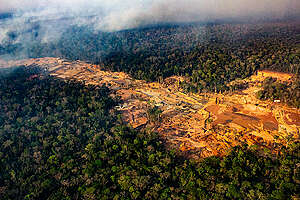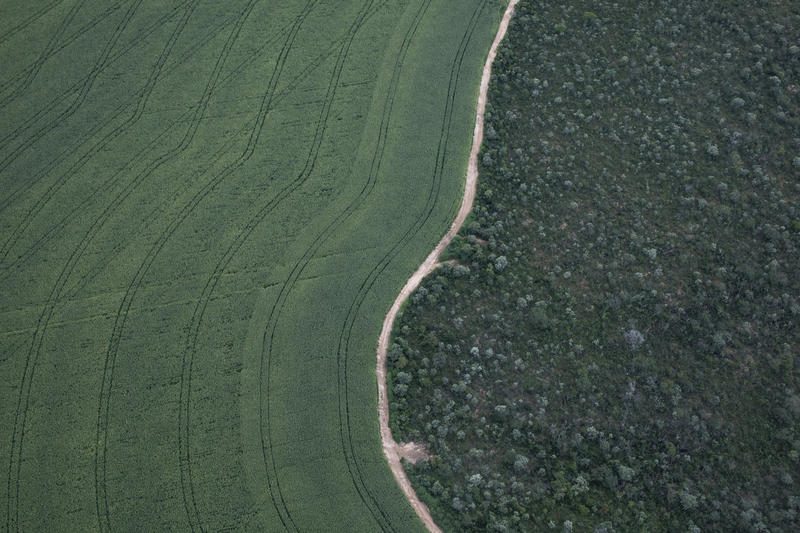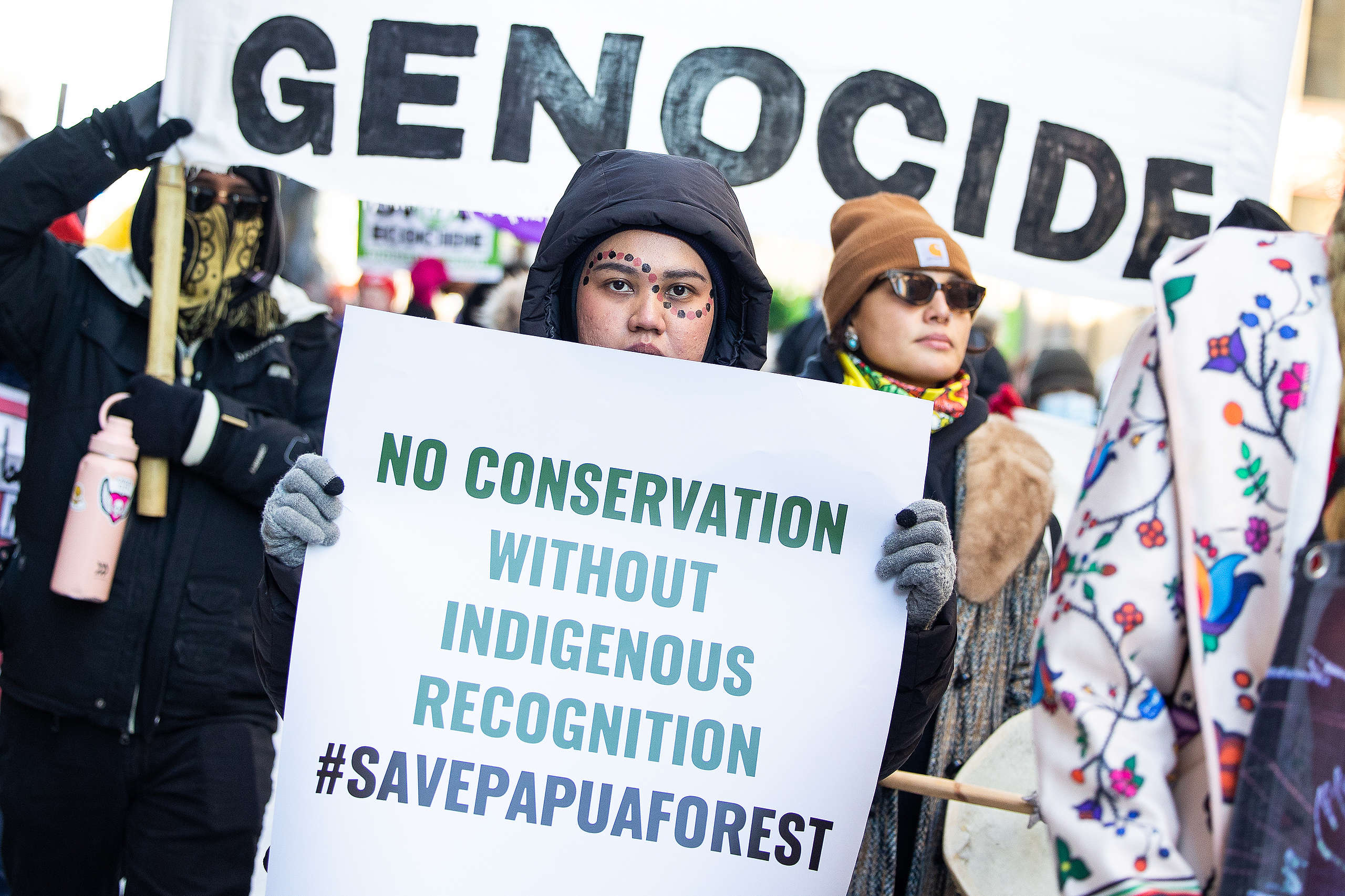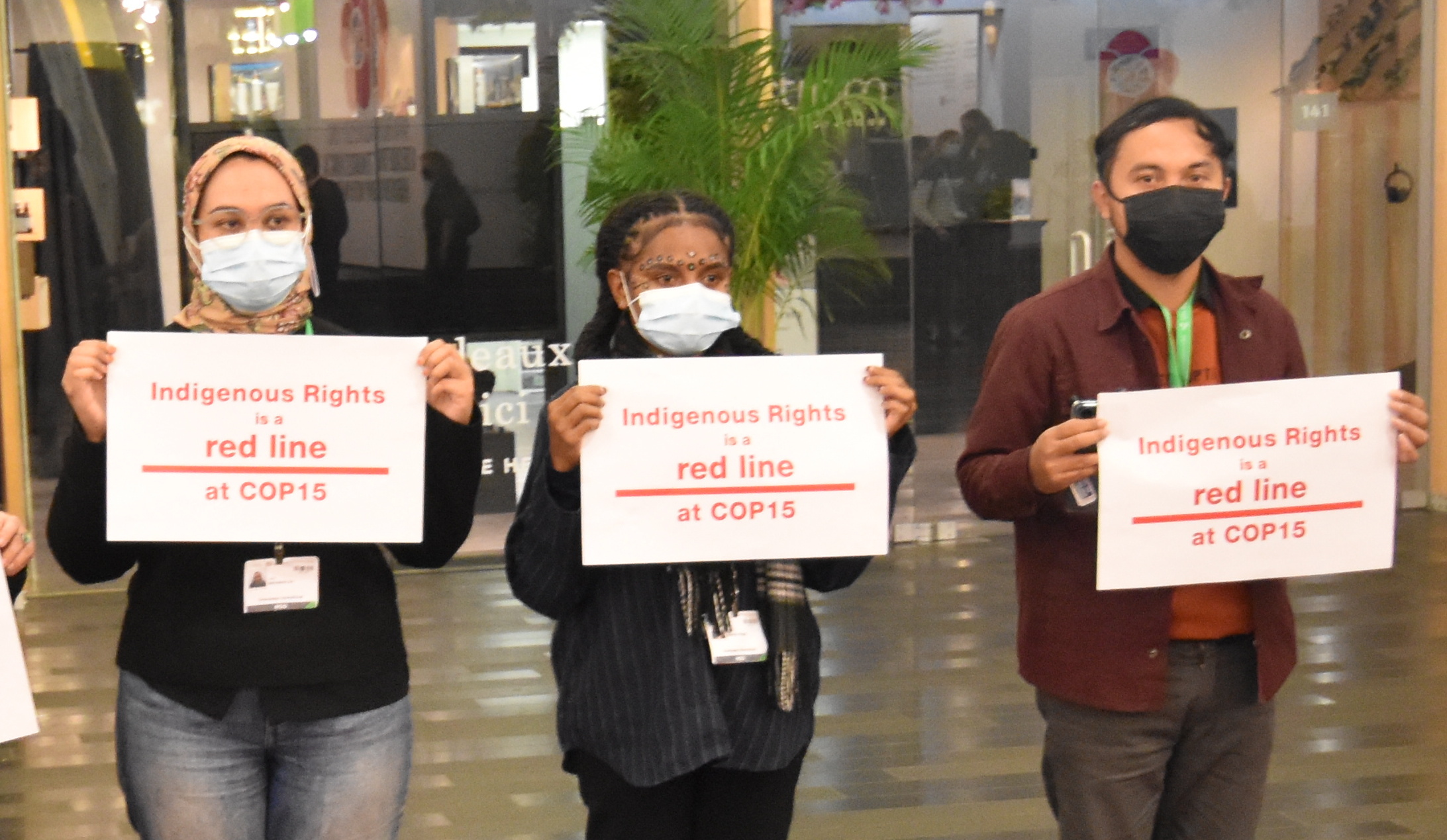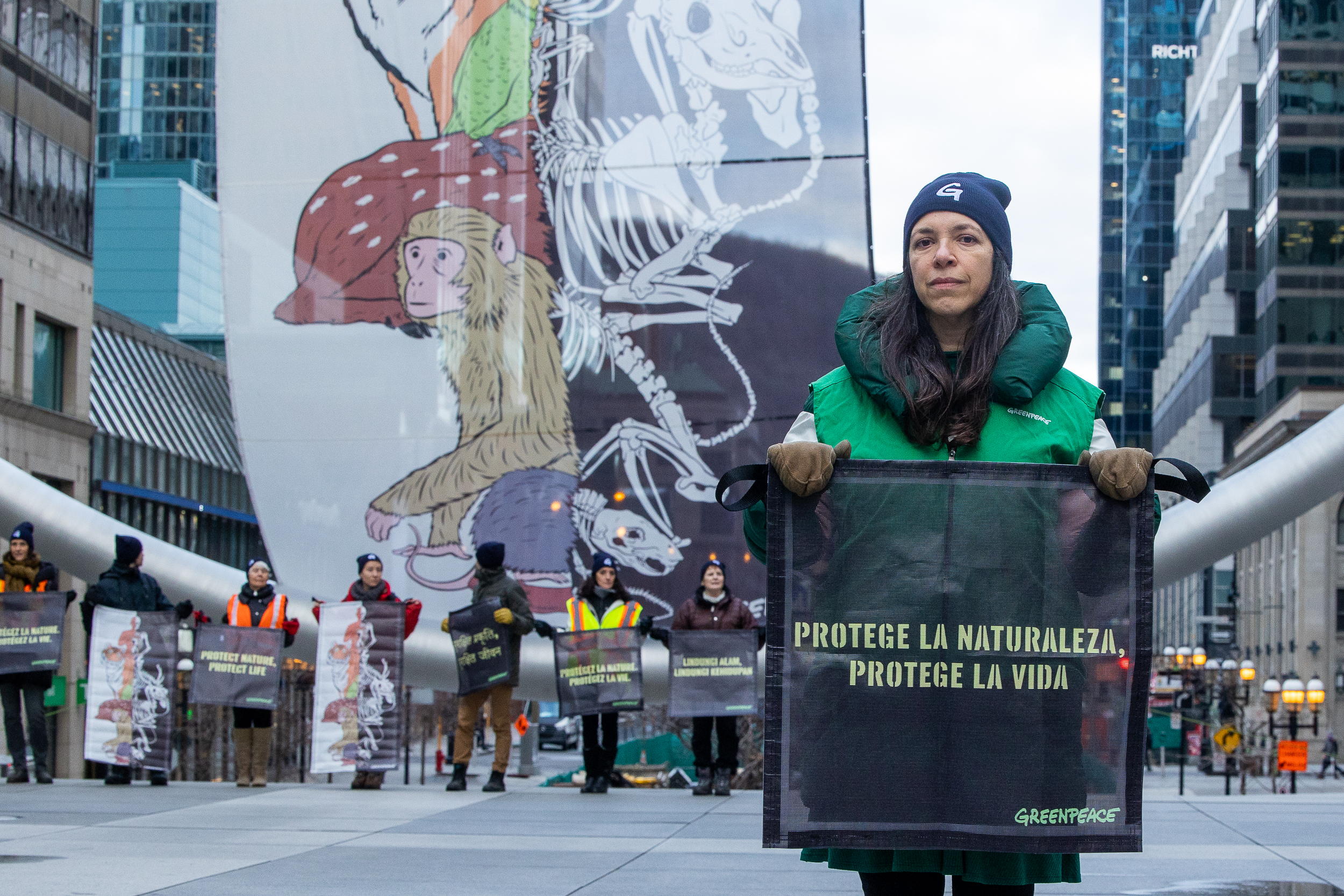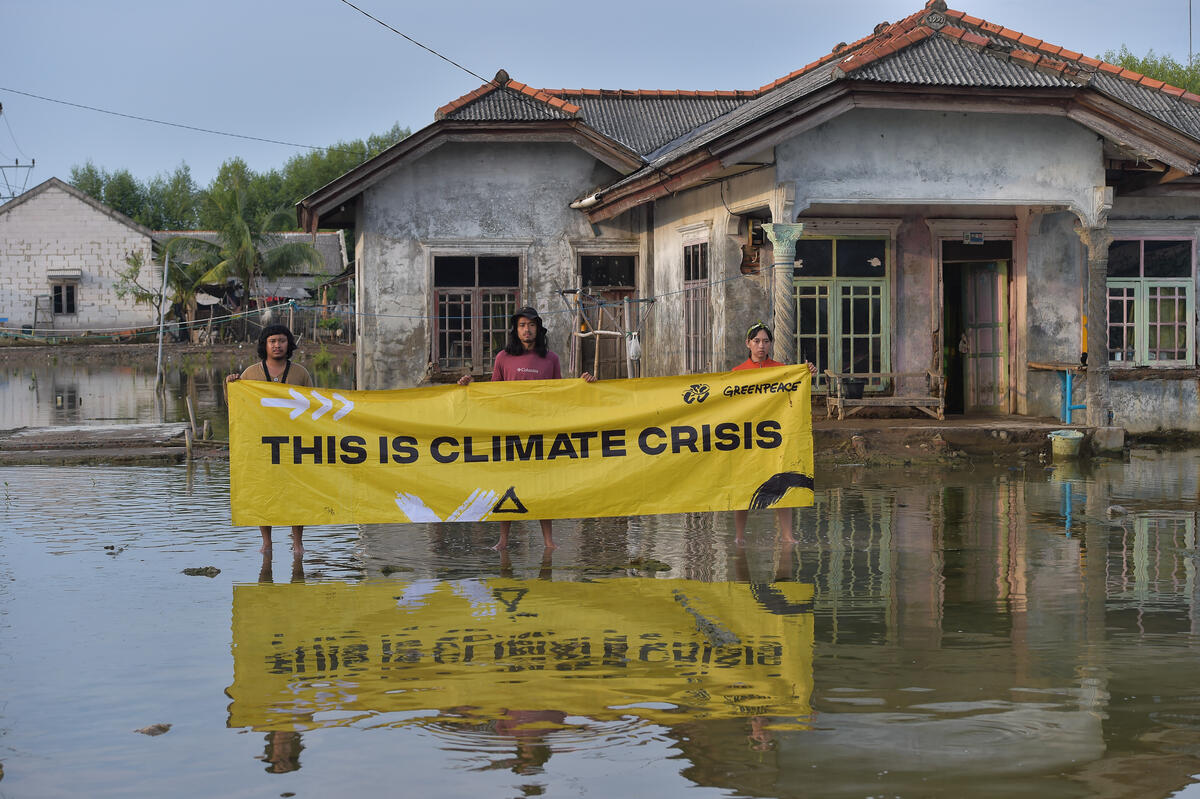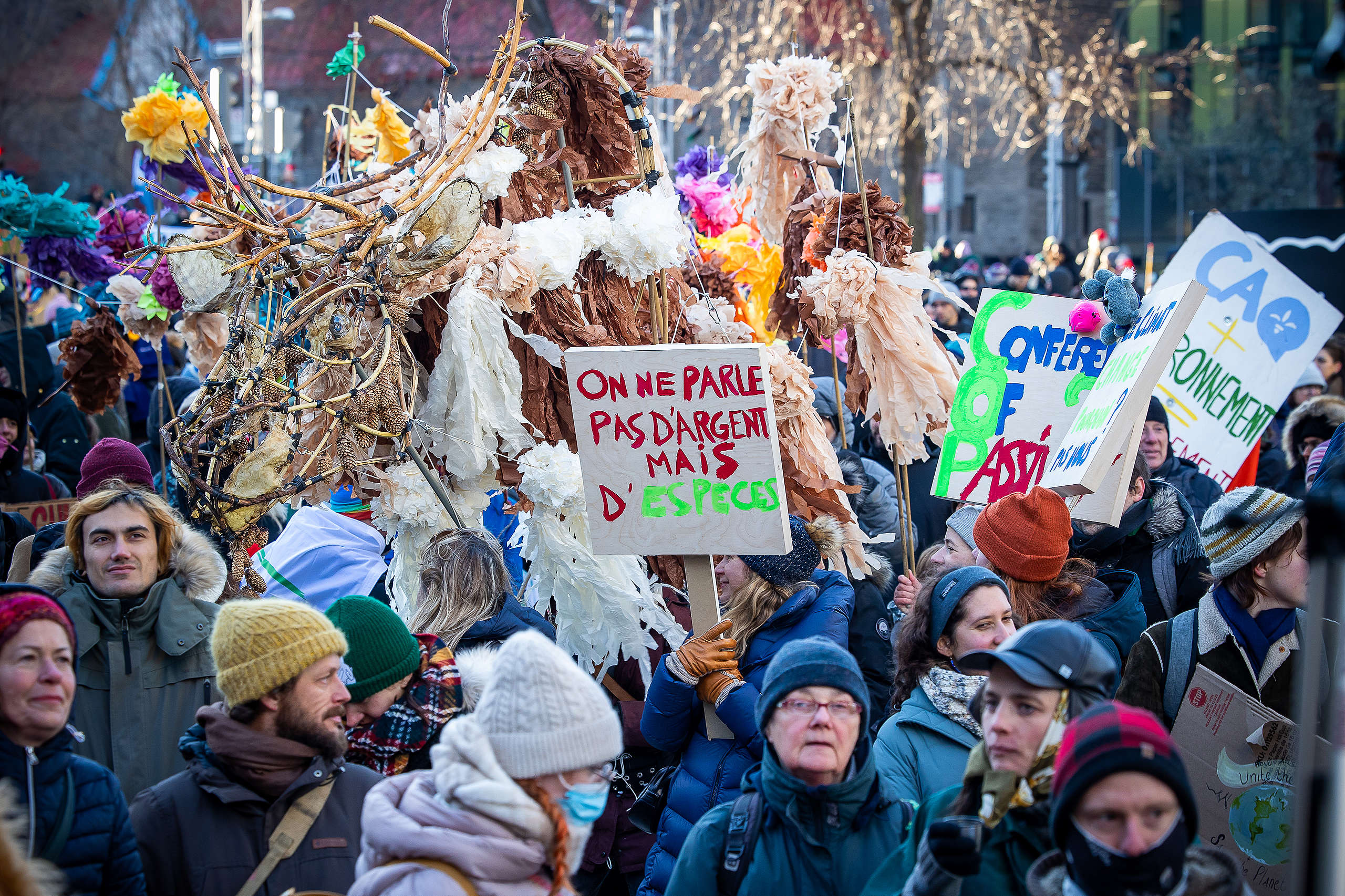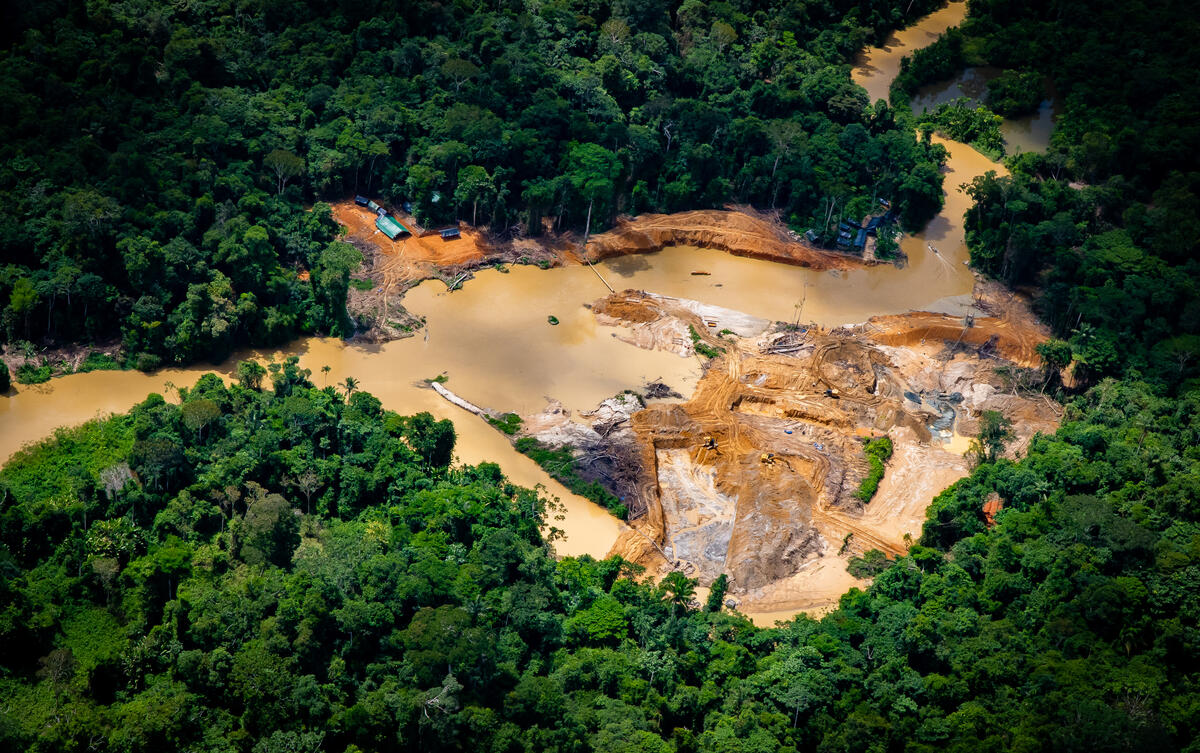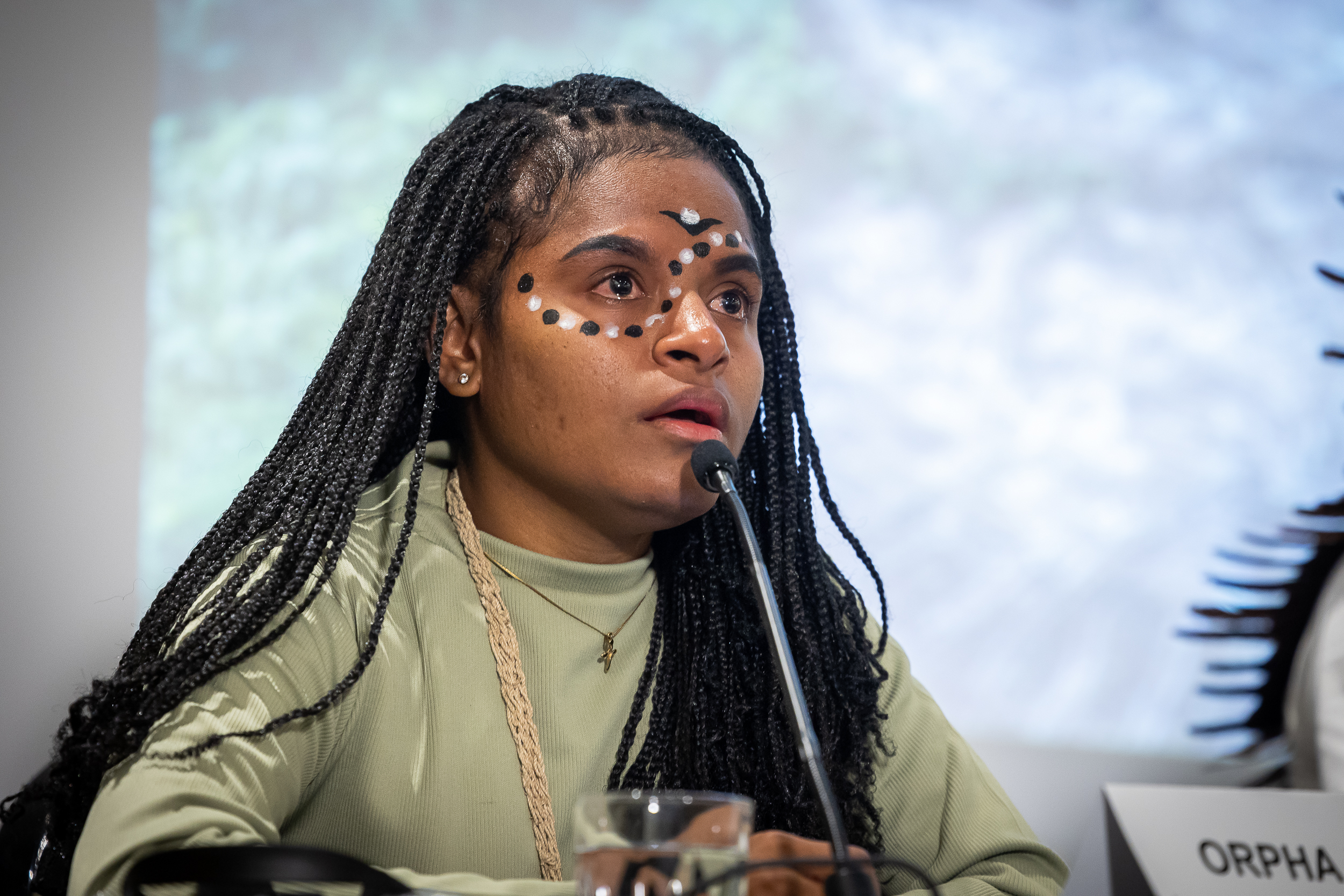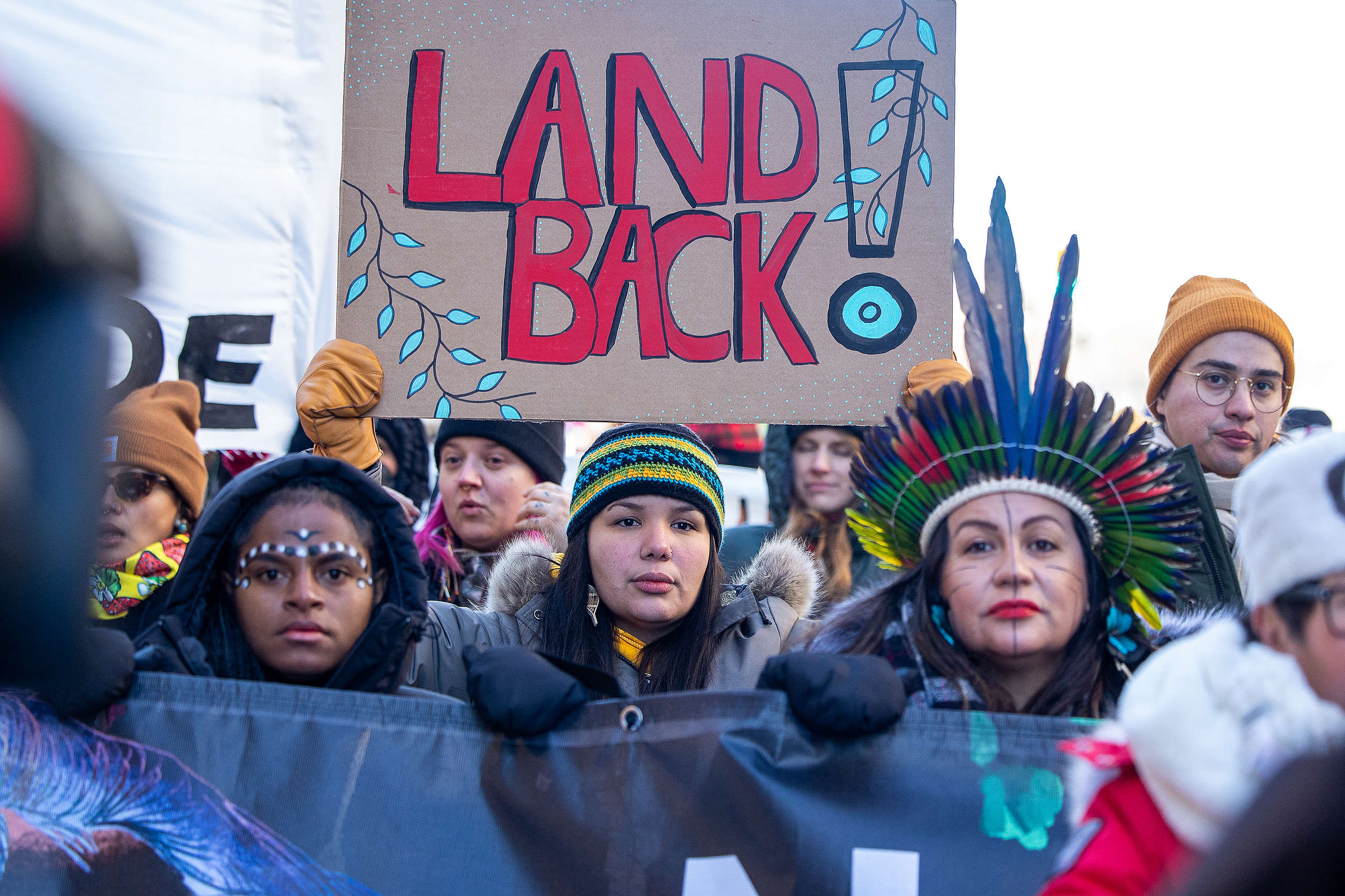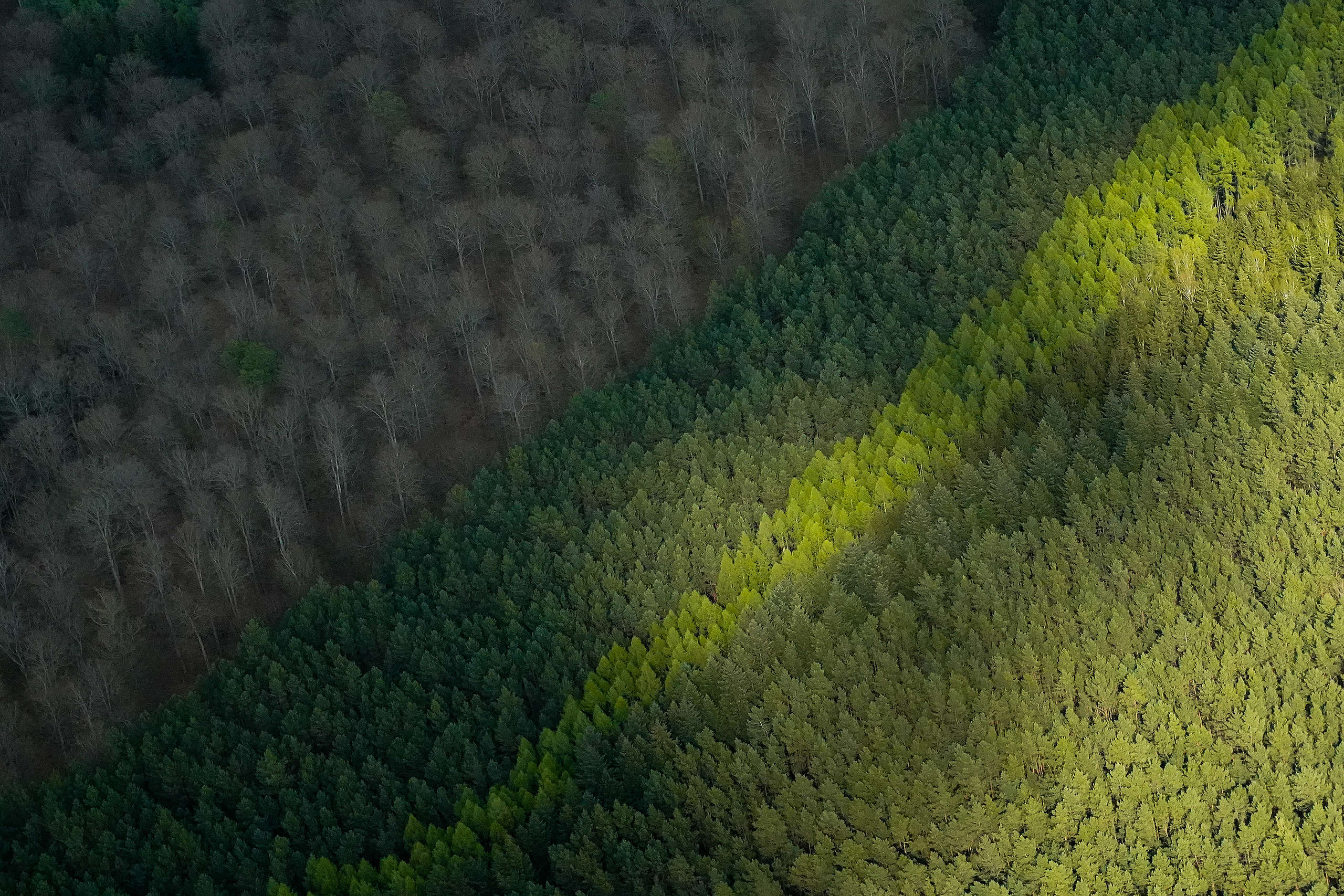All articles
-
Stripped down COP15 biodiversity framework draft would leave biodiversity unprotected
The Chinese presidency put forward text that acknowledges the necessary rights, roles, territories and knowledge of Indigenous Peoples but leaves targets wide open for industry to continue biodiversity-destroying activities.
-
Indigenous Rights is a red line at COP15
Indigenous leaders sent a clear message to governments inside the COP15 UN biodiversity talks today - Indigenous Rights is a red line.
-
Greenpeace calls on Europe to step up biodiversity finance as Canada commits new funding for developing countries to unlock COP15 impasse
COP15 host, Canada announced CAD $255 million in global biodiversity finance.
-
No money on the table for biodiversity at COP15: Greenpeace calls on the Global North to deliver
At COP15, wealthy countries have not delivered funding that is key to unlock an ambitious deal.
-
What is wrong with “Nature Positive”?
“Nature Positive” is more focused on saving a failed economic model than on protecting biodiversity.

